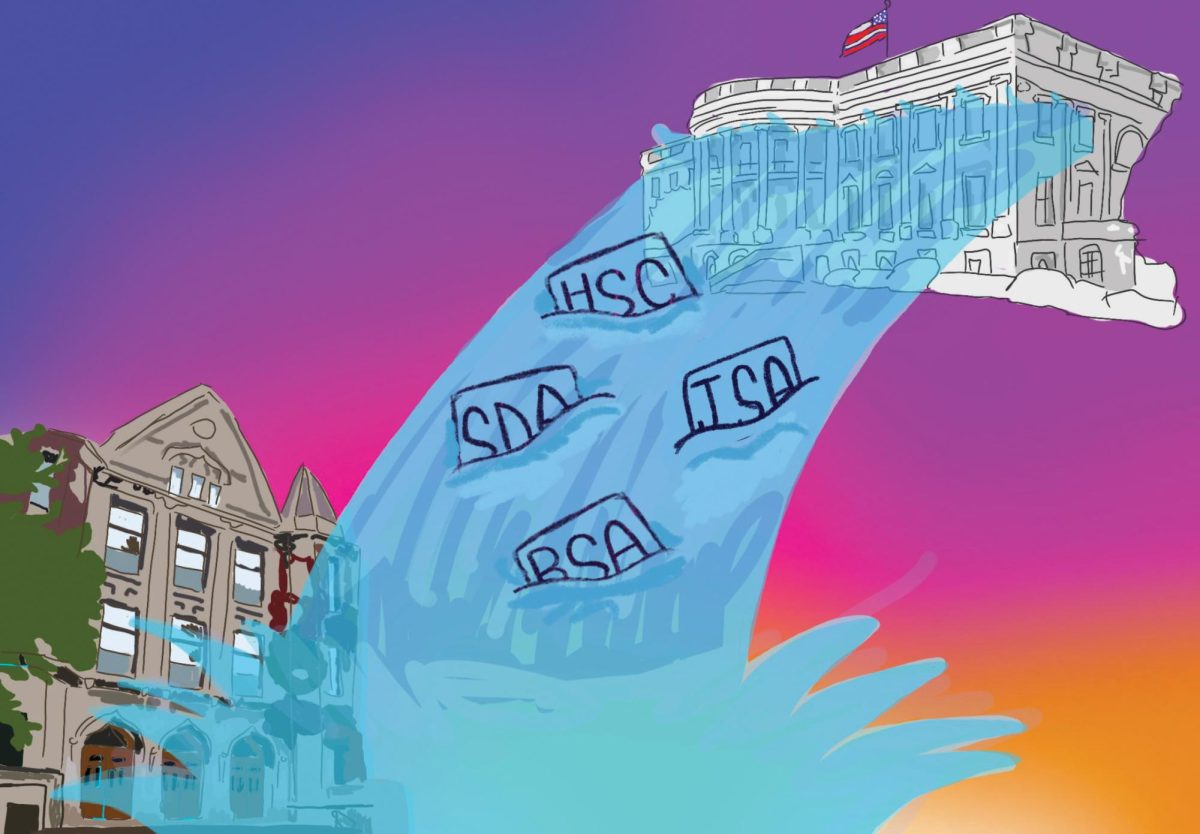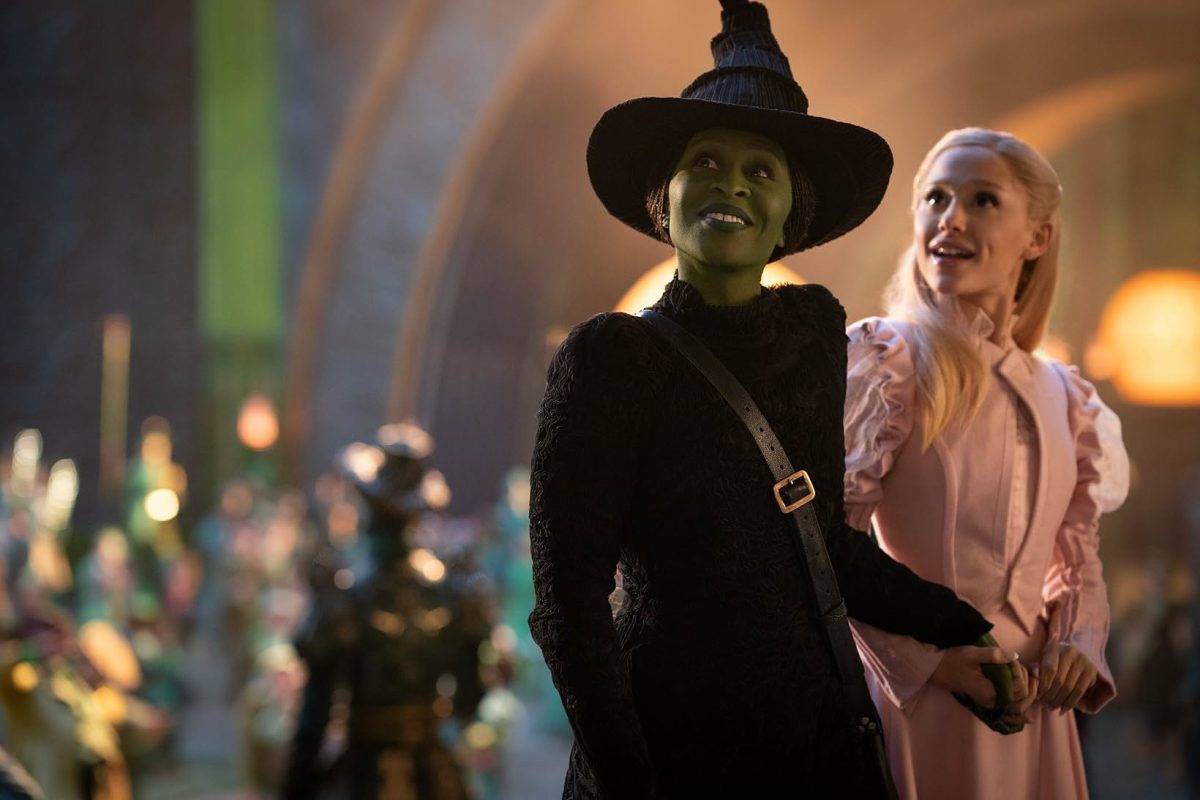Most Western fairytales instruct young women to identify with beauty and poise. “Wicked” promises something different in the character of Elphaba, the Wicked Witch of the West. She’s powerful and angry, and the other characters bow to her force. Her inability to conform to convention doesn’t matter. She’s showstopping, or at least she was on stage.
The musical was adapted in 2003 by Stephen Schwartz and Winnie Holzman from Gregory Maguire’s 1995 novel, “Wicked: The Life and Times of the Wicked Witch of the West.”, an origin story for the witch. The book was inspired by “The Wizard of Oz” movie from 1939.
The 2024 film adaptation of the 2003 “Wicked” musical is certainly entertaining. But, in the end, Jon M. Chu’s film proves to be a spectacle without substance. In interpreting the story as an opportunity for pageantry, he undermines the enduring strength of the characters and relationships.
Following a similar trajectory as Act One of the musical — the movie version of Act Two will appear in November 2025 — “Wicked” depicts the friendship between Glinda and Elphaba after they’re forced to room together at university. They start as sworn enemies. Elphaba is imposing, immediately recognized for her talent but an outcast due to her green skin. Glinda is blonde, conventional, inherently popular — Ariana Grande is captivating in her portrayal of the character. The two eventually become best friends, contending with their conflict over moral duties and the desire for external validation.
In the movie this relationship suffers alongside Elphaba’s characterization. Most interpretations of the stage musical showcase the character’s tangible force rather than depending on the audience’s sympathy for her plight. As an outcast who does not subordinate herself to convention, Elphaba’s strength is the reason why anyone who feels marginalized can identify with her. Cynthia Erivo’s performance instead emphasizes Elphaba’s vulnerability. Mr. Chu overshadows that subtlety with exhausting visuals, undermining the story’s capacity for emotional resonance. It is disappointing that the film’s epic length does not lend itself to character development and instead expands into a swollen spectacle.
“Wicked” is a political play with an ominously familiar landscape, based on a gritty, politically charged book. Even if the musical simplifies itself into a family-friendly production, leaving only the easily swallowable remnants of queer themes and extremism, “Wicked” explores power dynamics, doing so through female friendships and forceful women, and the invasive propaganda of the bumbling but sinister Wizard.
In the book, musical and movies, The Wizard of Oz transforms himself into a mechanism for spectacle: always appearing as an imposing green face, 20 feet tall and blowing smoke, announcing himself as “Oz the Great and Terrible” in a booming disembodied voice. It is both Dorothy and Elphaba’s burden to see past the display to the pathetic figure villainizing citizens of Oz to serve his political machinations.
It is ironic then that the movie cannot learn its own lesson about uncomplicated spectacle as a disguise for shallowness.






















































Zoe Cobb • Dec 5, 2024 at 10:35 am
I loved Wicked and hadn’t considered the ways Elphaba’s character functioned—the catchy songs and impressive visuals blinded me. But to your point, the movie is more of a spectacle than a fleshed-out story, especially given the depth needed to understand Elphaba’s character fully.